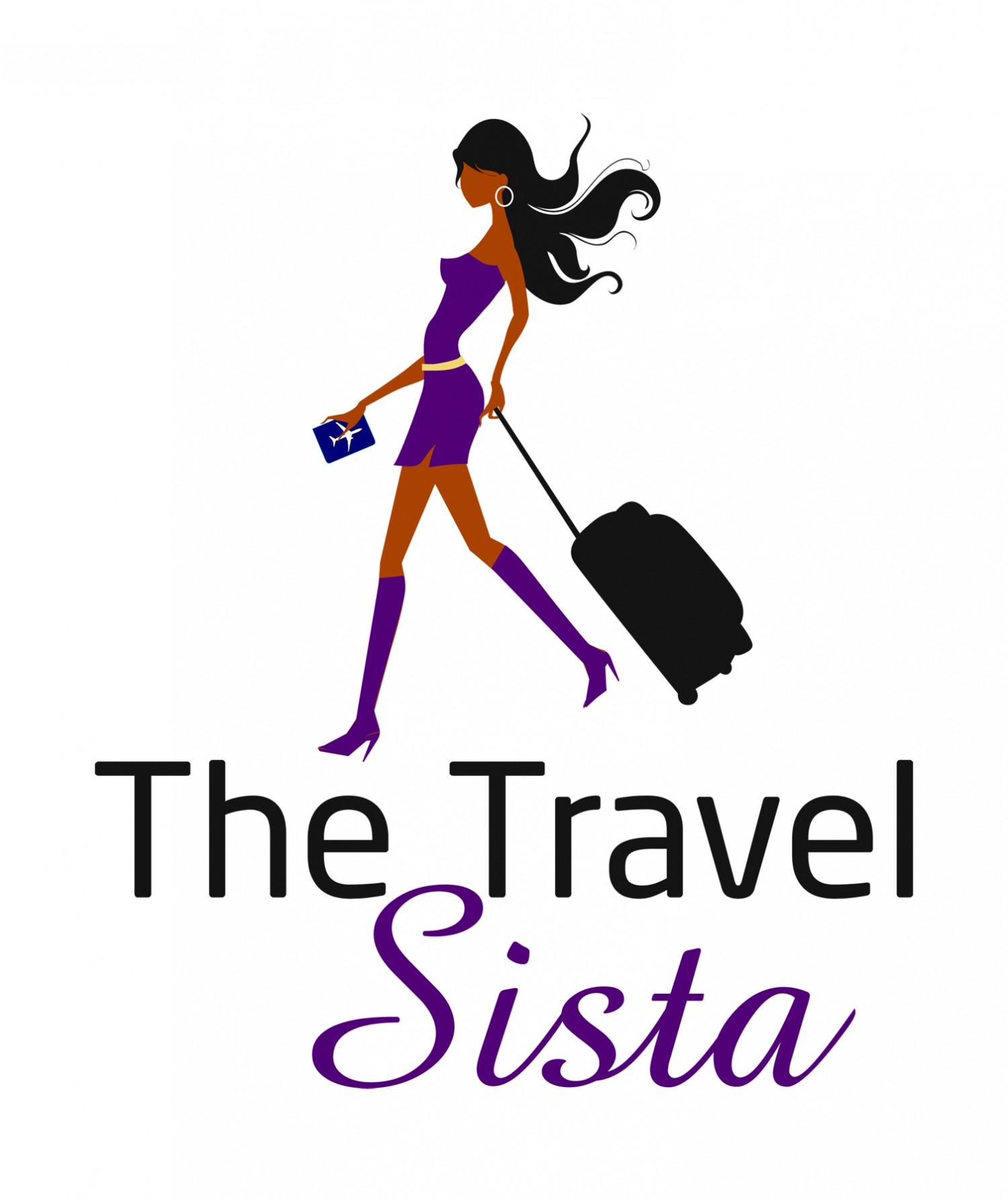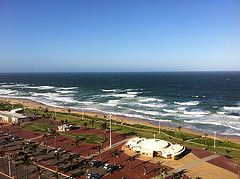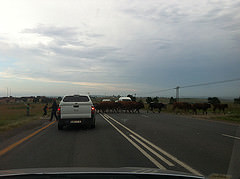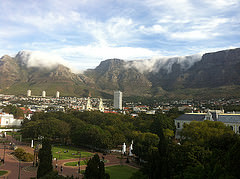On Christmas day last year, I scored an amazing glitch fare of $278 to Johannesburg, South Africa. Soon after, I started making plans for an extended trip back to the Motherland. I decided to visit South Africa, Lesotho, Namibia and Swaziland. Once I mapped out the places I wanted to go in South Africa and looked at airline schedules for inter-country flights, it quickly became clear that logistical challenges would make the trek easier by car. Now I’m admittedly not a fan of long road trips. Years of airline travel has made me spoiled (why drive 15 hours when I can get there in 2 on a plane) and anything more than 4 hours is sure to bring a frown to my face. So while the initial thought of driving across South Africa was not especially pleasant, after a bit of contemplation I sucked it up and decided to take the plunge.
Last week I took an epic solo road trip across South Africa, driving more than 1,000 miles from Durban to Cape Town. Along the way, I visited the Drakensberg/Sani Pass, Lesotho, Qunu (where Nelson Mandela was raised), Chintsa (on the Wild Coast), and Port Elizabeth (on the Sunshine Coast), before driving the coastal Garden Route down to Cape Town. The trip allowed me to see South Africa in all of its glorious splendor and to see the daily lives of South Africans. I also learned six important truths about the country.
1. South Africa is a vast, diverse country
South Africa is the 9th largest country in Africa, with a land mass of 471,000 miles. It has vibrant, modern cities with trendy restaurants, casinos, and entertainment. It abounds with beaches, winelands, and wild animals (Can you say the Big 5). It also is largely rural with tons of green rolling hills and majestic mountains sure to captivate any nature lover. In short, there is something to suit everybody. And speaking of diversity, they don’t call South Africa the Rainbow Nation for nothing. The people are just as diverse as the landscape, with 11 official languages and a variety of cultures. You’ll find blacks, whites, coloureds (mixed race in South African parlance), and Indians here, with more concentrations in certain areas (like Indians in Durban, whites in Cape Town, and blacks in Soweto).
2. South Africans drive on the “wrong” side of the road
OK, that’s a joke. Seriously though, while Americans drive left steering wheel vehicles on the right side of the road, South Africans drive right steering wheel vehicles on the left side of the road. Driving was tricky because I had to constantly remember to stay left and think about where to turn, tasks that come instinctively when I’m driving at home. And more than once I walked to the left front side of car forgetting that the driver’s side was on the right.
3. South Africans have a need for speed
I thought Americans were bad when it comes to speeding and risky driving, but I think South Africans win the prize. Speed limits seemed to be optional despite traffic camera signs everywhere and signs warning of high accident zones. Drivers thought nothing of overtaking/passing other cars with limited sight ahead. Even steep mountain curves were no obstacle for these speed demons. I saw several near head-on collisions and even a near vehicle/cow collision (See #4).
4. South African roads and highways are to be shared by cars, people and animals
The highways are not restricted to vehicles, so you may encounter people walking along the narrow shoulder or even cows, goats or sheep crossing the roadway. I quickly learned you must always pay attention to the road because you never know who or what you may encounter. Take your eyes off the road for a second and you could have a major catastrophe on your hands.
5. Hitchhiking is commonplace in South Africa
Many South Africans in villages and rural areas do not have vehicles, so they either catch mini-taxis or thumb a ride with a stranger. While I’d never pick up a hitchhiker at home, I picked up an elderly Xhosa lady in Qunu and gave her a ride from her village to the main road. She offered me R50 (approximately $4.50 USD at time of writing), which I politely declined. Her smile and obvious excitement at scoring a free ride was enough to make my day. Besides, I also believe in karma. I hope someone returns the favor one day if I’m a senior in need of help.
6. Post-apartheid, South Africa still has prevalent poverty and inequality
South Africa has a burgeoning black middle class, but 21 years later the harsh aftermath of apartheid can still be seen in the daily lives of the majority. As I traversed the country, it was hard not to notice the extreme inequality between black and white South Africans. I saw a lot of luxury vehicles (BMW, Mercedes Benz, Range Rover) mostly driven by whites, while most blacks walked to and from work or other activities of daily living. Similarly, I saw beautiful waterfront homes (in mostly white areas), while many blacks lived in townships or rural villages with no indoor plumbing or electricity. The juxtaposition was striking and it was the one down point of my adventure. While I (and many others) had hoped South Africa’s new democracy would usher in a new era of social and economic freedom, in fact, some studies suggest that South Africa is more unequal since the fall of apartheid. I don’t know the answers, but it’s an issue that sorely needs to be addressed. Hopefully with continued progress, South Africa will achieve the true freedom and equality that Nelson Mandela and other freedom fighters fought for.
Have you ever taken a road trip in a foreign country? What did you see and learn? Share your comments below.
Share This


